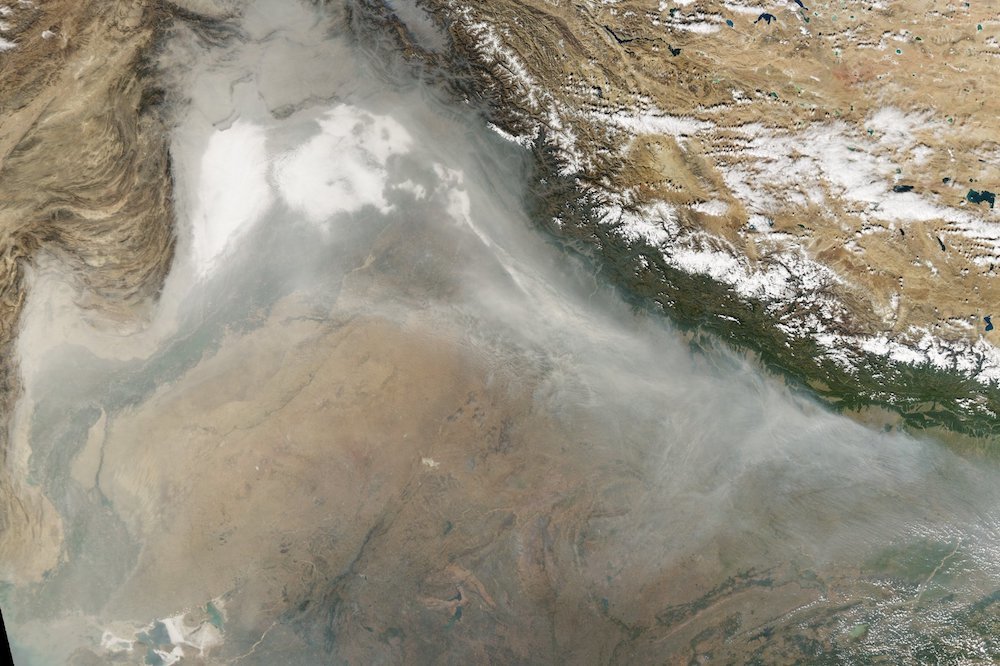
Air pollution threatens the brain development of millions of babies
Childcare, Early childhood development, Health and nutrition, Safe pregnancy and birth
Pollution is damaging not only their lungs but also their brains - and that could have lifelong consequences, UNICEF has warned.
The brain development of millions of babies is being put at risk by breathing in toxic air.
Almost 17 million children under the age of one live in areas where air pollution is at least six times higher than international limits, according to UNICEF.
More than three-quarters of them live in South Asia, says a new paper released today by the United Nations children’s agency.
“Not only do pollutants harm babies’ developing lungs – they can permanently damage their developing brains – and, thus, their futures,” said UNICEF Executive Director Anthony Lake.
“Protecting children from air pollution not only benefits children. It is also benefits their societies – realised in reduced health care costs, increased productivity and a safer, cleaner environment for everyone.”
90% of brain development happens in the first five years of a child’s life. Theirworld’s #5for5 campaign highlights the five key areas that children need in that crucial period – nutrition, health, learning, play and protection.
We are calling on world leaders to invest in early childhood development and to spend 10% of their education budgets on pre-primary education.
UNICEF’s paper – Danger in the Air: How air pollution can affect brain development in young children – says breathing in particulate air pollution can damage brain tissue and undermine cognitive development, with lifelong implications and setbacks.
The immune systems of babies and young children are still developing and their lungs are still growing. That means they take in more air for their body weight than adults – and therefore more toxic air.
Many of these children live in urban slums and are already at greater risk of other environmental threats such as dirty water and poor sanitation.
The paper says: “Air pollution is associated with some of the biggest killers of children, such as pneumonia, which is responsible for the deaths of 920,000 children under five years of age every year.
“Air pollution is also linked with asthma, bronchitis, and other respiratory infections and diseases, which can be debilitating, force children to miss school and even cause long-lasting damage to their health and wellbeing.”
UNICEF said satellite images reveal that South Asia has the largest proportion of babies living in the worst-affected areas.

It has 12.2 million babies living where outdoor air pollution exceeds six times international limits set by the World Health Organization. East Asia and Pacific has 4.3 million babies in that category.
But air pollution is an issue facing children in cities around the world. London mayor Sadiq Khan said it is “the biggest public health emergency of a generation”.
It followed an investigation earlier this year which found that hundreds of thousands of children in England and Wales are being exposed to illegal levels of damaging air pollution from diesel vehicles at schools and nurseries.
The third UN Environment Assembly is being held this week in Nairobi, Kenya – against the backdrop of 18,000 people dying every day as a result of air pollution.
“Our collective goal must be to embrace ways to reduce pollution drastically,” said Dr Edgar Gutiérrez, Minister of Environment and Energy of Costa Rica and president of the 2017 assembly.
“Only through stronger collective action, beginning in Nairobi this week, can we start cleaning up the planet globally and save countless lives.”
More news

